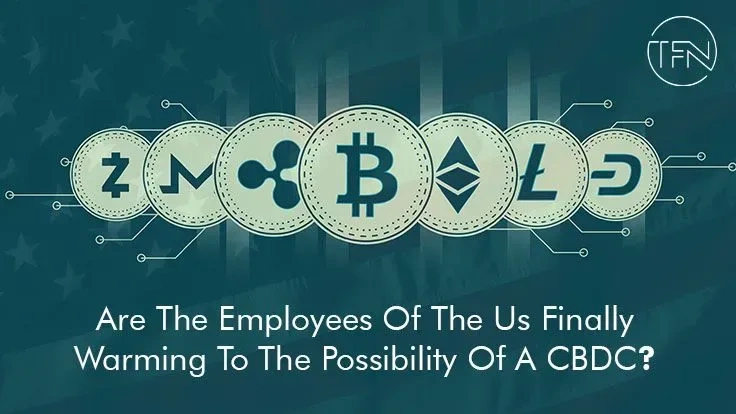
President Joe Biden issued Executive Order 14067 on March 9, 2022. Its title is "Ensuring Responsible Development of Digital Assets." It sets priorities for research and development into the different ways a US central bank digital currency (CBDC) could be made and used.
So that the United States stays at the top of the world's financial system, the order tells the Federal Government to "give priority to quick analyses of possible benefits and risks under different designs."
A lot of the ongoing discussion about the prospective introduction of a digital currency is done so through the prism of financial leadership.
The Federal Reserve System (the Fed) will issue the CBDC, a digital version of the US dollar, and it will function similarly to cryptocurrencies like bitcoin and tether.
But this new digital fiat currency would be very different from cryptocurrencies in that it would be fully backed by the Federal Reserve and could be used everywhere.
It benefits consumers, investors, and businesses while lowering risks. By default and design, it provides enough financial and digital safety for consumers, investors, and businesses.
It also works together with traditional US dollar forms to promote economic growth, financial stability, and the reduction of systemic risk. They should also be flexible enough to support a wide range of economic policy goals, such as encouraging competition and new ideas.
Also, it needs to reduce risk, make sure the financial system is resilient, and keep working normally even when it's under stress.
It also helps avoid risks to the international monetary system and financial system by making sure the global financial system has the transparency, connectivity, platform, and architectural interoperability or transferability it needs to support transactions with other currencies and systems.
With this, an increase in financial inclusion and equality is possible so that the CBDC system could provide access to a wide range of prospective users and customers while reducing certain risks, such as money laundering and destabilizing runs.
It should also keep the US in charge of the international financial system, especially the role of the dollar.
It also respects human rights, like those in the US Constitution, the Universal Declaration of Human Rights, and the International Covenant on Civil and Political Rights should be possible.
Built-in protections in it should make sure that financial data is kept private by default, and the CBDC system should protect the privacy and stop monitoring that is arbitrary or illegal.
Also, it seems like the Federal Reserve is suddenly warming up to the idea after being hesitant about a CBDC for many years. During that time, other large economies moved forward with making their digital fiat currencies.
Even though the Federal Reserve hasn't decided whether or not to pursue or use a central bank digital currency (CBDC), it says on its website that it has been looking into the possible benefits and risks of CBDCs from several angles, including through technological research and experimentation.
"Our main concern is whether and how a CBDC might enhance an existing secure and effective domestic payment system in the United States," stated Jerome Powell, who is the head of the Fed.
He further noted that the organization plans to tell Congress how to move forward with making a CBDC.
According to him, "It's a significant potential financial innovation that will touch all Americans."
In the next few years, "our strategy is to work on both the policy side and the technology side and eventually come to Congress with a suggestion."
China is the United States' biggest economic and political rival. China is moving quickly to set up a CBDC because it wants to speed up the global adoption of its digital yuan. To compete with China, the United States may have to give up its hand and build a digital dollar.

